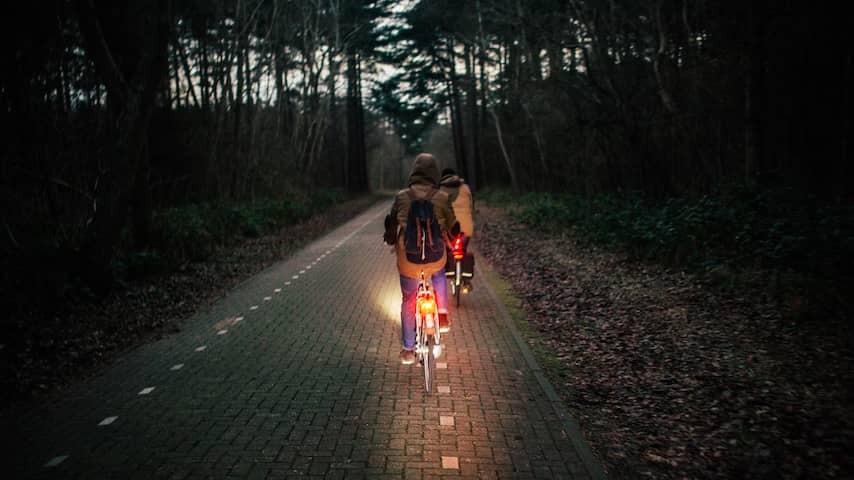
News about Murder, Assault, and Rape Can Make You Feel Angry, Scared, Or Powerless. It might also awaken your protective instincts and make you want to keep your child at home. How do you Find the Balance Between Your Fear and Their Need for Autonomy?
Parents Are Always Concerned about Their Children, Says Savannah Boele, A Postdoctoral Researcher at Erasmus University Rotterdam. She Researches Overprotection by Parents.
Raising Children Comes with a Certain Amount of Fear, She Says. Parents Need to Understand Thatir Own Fears and Concerns Shouldn’t Get In The Way of Their Teenagers’ Freedom, Autonomy, And Privacy.
It’s not strange that the world seems like a more dangerous place for children when a shocking crime has just occurred, boele says, even if the numbers don’t show that it’s actual Becoming More Dangerous.
It’s understandable that you Become a bit more controlling as a parent, Accordance to Boele. “However, for the sake of their child, parents need to realize what dangers they actual face and how likely they are.”
Knowing More Means More Fear
It Seems Like Parenting is much more protective nowadays than it used to be, boele says. That’s also a popular opinion. “Scientific research shows that there is a slight increase in overprotective parenting. I would cautiously say that we are not massively more overprotective in raising children’s fashion we used to be.”
However, there are now many more ways to stay in touch with your child and to take in information. We can track, call, and text children, and look into their banking apps and school results. If we know so much, it confirms our worries and fear, Boele Knows.
“In the past, we were also protective, group, and fearful, but there was nothing to do but wait at home or ask the neighbor if she had seen anything.” And anxious parents tend to overprotect, accordance to Earlier Research.
Too much support or too strict?
Overprotection HAS Two Forms, Boele Explains. The First Form is support, comfort, quickly hike things out of their hands, and solving problems for them, Sometimes Even Before there is a Problem at All. Another Way is to have many strict rules, such as beer home before dark every day or no screen time.
Science Cannot Determine How Much Parents Overprotect Their Child, Boele Says. However, the effect is known. “Constantly Warning your your child can be harness. If Young People repeatedly get the idea that they probable can’t do something, it can make them insecure and undermine their self-confidence. It can make theme depressed and anxious excitant. Exportant. Exportant. Exportant. Exportant. It is so Important. It is so Important. It is so Important. So Important. It. “
Tension and Adversity Are Essential
Boele Emphasizes That Learning to Deal with Tension and Adversity is Essential in the Teenage Years. “By keeping them away from their own experiences, you also deny them the chance to have fun, positive experiences, such as making friends, having an adventure, or getting into trouble and solving it themselves.”
Leading your children into adultHood a Little Broised and Scraped with Bad and Sad Experiences is the most beautiful gift you can give them, Says Educationalist and Teen Coach Tamar Poot.
“Something like the murder of a young girl naturally touches Something in Parents. It triggers the protective instinct even more.
Maybe you would prefer to forbid your child from leaving the house for the time being. “Your Fear and Protective Instincts Cannot Be Leading, So You Have To Make Conscious Choices. You Cannot Take Away Teenagers’ Freedom, Because It is Essential for Their Well-Being, To Develop Skills, And To Grow.”
A Little Less Freedom is QUITE REASONABLE
Explain to your child that you find it extra exciting to let go in the coming period, advisory leg. Emphasize that it is due events in the news and not because you doubt your child. “Explain that you are extra concerned and that you don’t trust Others Right Now.” It is not unreasable that that freedom is then temporarily restricted, they also have to learn to deal with that, Says the Teen Coach. “Sometimes things are against you. You can’t always do what you want, that’s a valuable lesson.”
Think carefully about when you will stop, says boele. “If you want to track your child going out, give your child privacy duration the day. Young people don’t think it is diffress to share their location, these are common practices for this generation. But what do you go in information? If they are in a place you don’t know? “
Focus on the good things, the times your child did something independently and solved it, says boele. And reflect: Was I Afraid and Anxious for Nothing? “Parents in our research indicate that they experience that in daily life. You as a parent to learn to gain trust.”